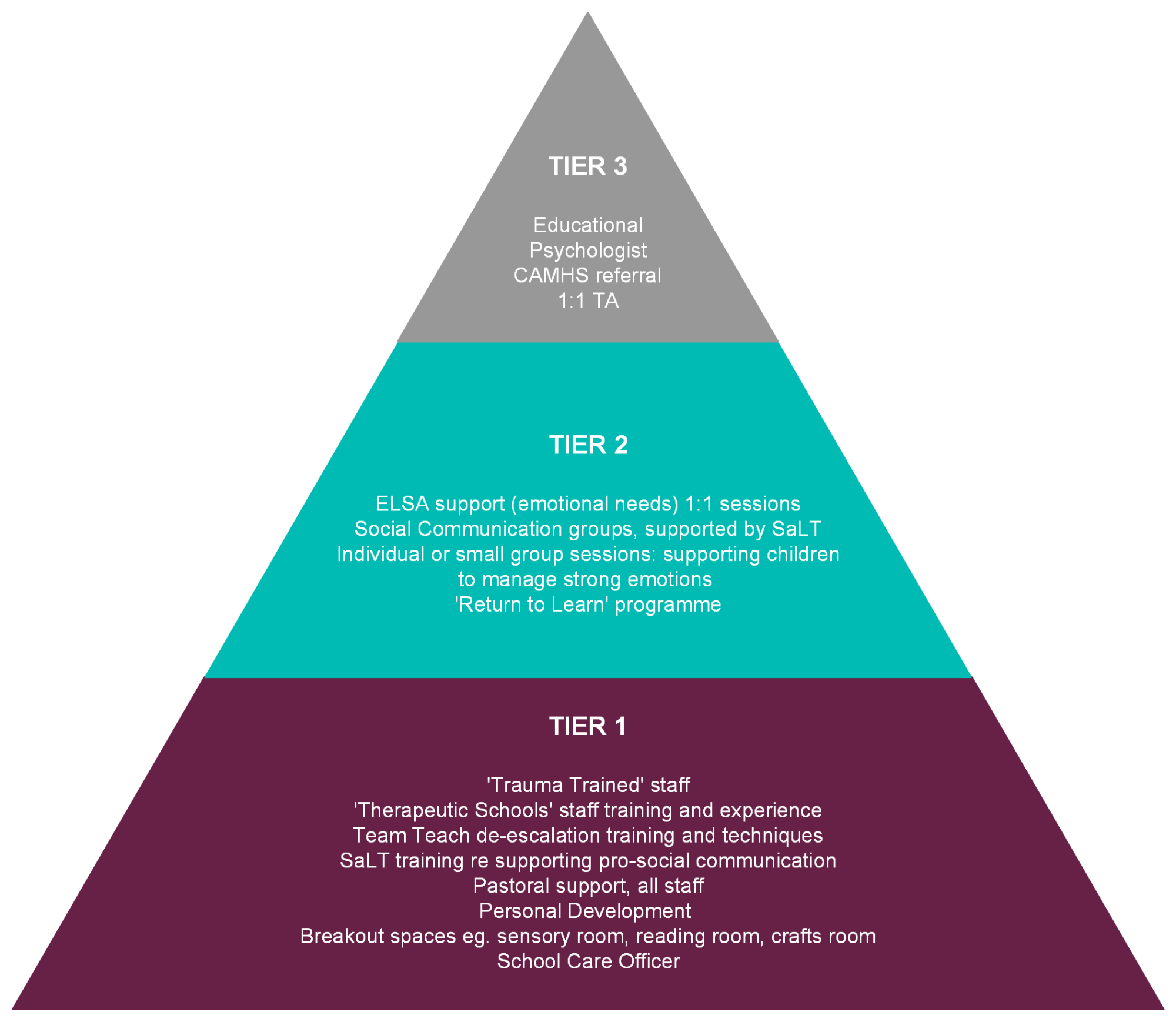Therapeutic Provision
|
All staff at Hamilton School use a therapeutic approach; providing positive experiences for our young people and nurturing confidence, kindness and self-belief. All Hamilton School students have a primary need of social, emotional and mental health (SEMH). The school’s support structure for SEMH can be represented by 3 tiers of support (see diagram), depending on the level of need. Tier 1 is universal, tier 2 is targeted and tier 3 is specialist.
TIER 1All students receive this universal level of support. PSMSC stands for personal, spiritual, moral, social and cultural (Personal Development).
TIER 2Some students receive this targeted level of support. ELSA stands for Emotional Learning Support Assistant; our support staff have received ELSA training from the school’s Educational Psychologist. In Social Communication Group, students are supported to engage in pro-social communication with their peers, designed to prepare them for college and adult life. Anger management and anxiety management sessions run for 4 – 8 weeks, either 1:1 or in small groups, using published resources, to support students to develop pro-social strategies for managing these difficulties. Staff have received training from the school’s Educational Psychologist. Our ‘Return to Learn’ programme is designed to support students who refuse to attend or students who are unable to manage their behaviour in classrooms or around the school site generally. The programme begins in the afternoons (after the end of the normal school day) with two sessions of English and Maths a week, either 1:1 or 2:1 and a series of up to twelve mentoring sessions, one a week, addressing pro-social behaviours. If this is successful, students begin attending class-based lessons, two per day and these can increase if students are able to manage.
TIER 3Tier 3 is our specialist level of support, where we may refer a student to the Educational Psychologist for assessment, discuss a possible CAMHS referral with parents (referrals must be made by a child’s GP) or request funding for a 1:1 TA from the child’s local authority. |

